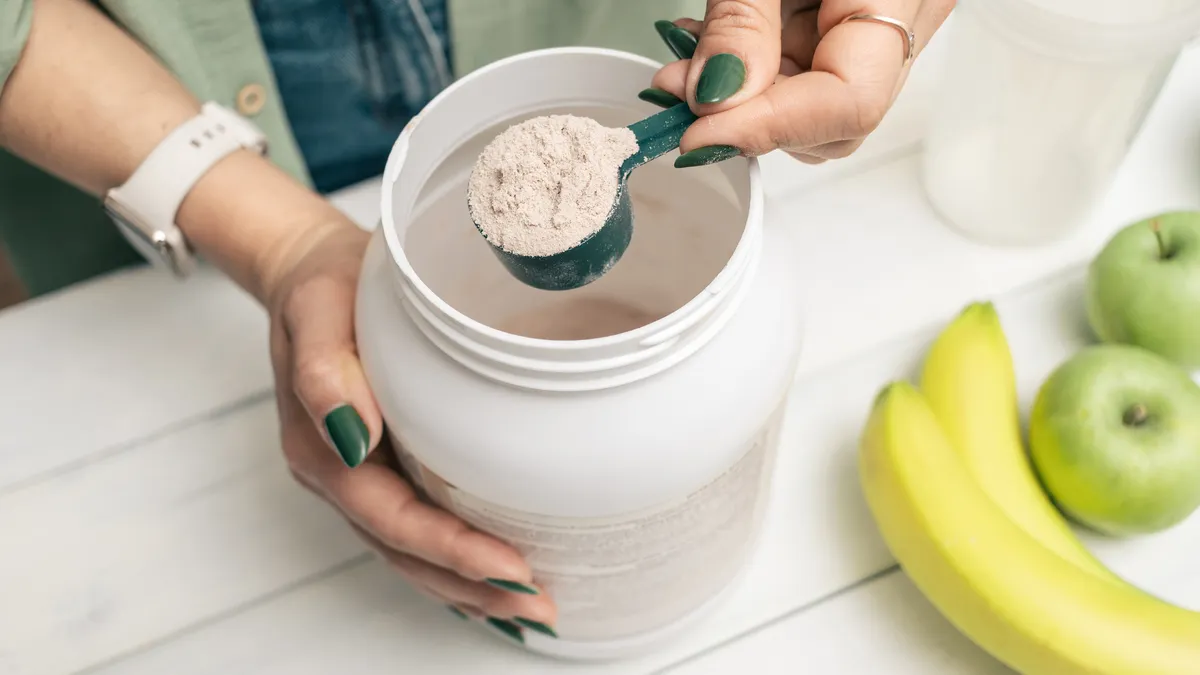Copyright CNET

It would be easy to mistake collagen as just a powder you can buy in your local health store. As a matter of fact, collagen comes in various forms, such as creams, gummies and -- yes -- powders. As our bodies age, our ability to produce collagen reduces over time, which risks our skin health and joint functions deteriorating. This is why it's helpful to include collagen in your diet. But what's the best way to do that? Several Reddit users have been wondering the same -- is all the hype around collagen actually worth it? In this guide, we’ll examine collagen, its benefits, and what you should consider before adding it to your diet. It's important to note that when adding something to your diet or lifestyle, it is best to check in with a health professional first. What is collagen? Before discussing its benefits, what is collagen? In short, collagen is the most plentiful protein in the human body and accounts for one-third of all protein. It serves as a connective building block that holds together your muscles, tendons, ligaments, bones and skin. It holds together your muscles, tendons, ligaments, bones, skin and promotes healthy joints and connective tissues. There are nearly 30 known types of collagen, but type I is the most prevalent (it exists in all connective tissue and makes up 90% of all collagen in the body). Types II, III and IV are also common and found in various parts of the body, including your joints, kidneys, ears and blood vessels. All of this leads us to another pertinent question: What is collagen good for? Your body naturally makes collagen by combining multiple amino acids (like proline and glycine) with zinc, vitamin C and copper. As you get older, production slows and the existing collagen in your body starts to break down at a faster rate. When that happens, you may notice your skin getting wrinklier, your tendons and ligaments becoming less flexible and your muscles shrinking. To prevent or delay these effects, some people make up for what their body has lost by eating collagen-rich foods or collagen supplements. Adding collagen to your diet If you're looking to amp up your healthy collagen production, you should ensure that your diet includes foods with these essential ingredients: Bone broth Fish and shellfish Chicken Pork skin Eggs Beans Citrus Bell peppers Nuts Eating a well-balanced diet with a combination of these foods is the best way to boost the collagen protein in your body. You can also consider taking collagen supplements (typically collagen powder or capsules) if you aren't getting enough collagen from diet alone. For best results, experts advise taking a collagen supplement one hour before working out, but always check the label and speak with your doctor before starting any new wellness routine. Read more: Our 7 Favorite Supplements for Joint Health in 2025 Benefits of collagen Now that we've covered the fundamentals, let's explore some of the benefits of collagen supplementation. Builds stronger bones Bones are full of collagen, but as you get older, the protein starts to deteriorate -- and so does bone health -- leading to a decrease in bone strength and density. By incorporating collagen supplements into your diet, you may be able to prevent some bone loss and reduce your risk of bone-related problems, including osteoporosis and fractures. Decreases joint pain Collagen also works together with cartilage to keep your joints properly functioning. Over the years, as it wears down, it can lead to stiff and achy joints and put you at a higher risk for osteoarthritis. The good news is that taking collagen supplements has been found to reduce joint pain in physically active people. It may also serve as a pain reliever for people with existing joint problems. Improves skin Your skin also contains collagen, which gives it elasticity and hydration when you're young. As you mature, your skin becomes saggier and more wrinkly due to depleting collagen levels. Interestingly, studies have shown that adding more collagen to your diet can boost skin elasticity, firmness and hydration, visibly reducing the effects of aging. Promotes healthy hair Collagen is created with some of the same amino acids that are used to build keratin, the protein that makes up your hair. Because of this connection, there is some evidence that consuming more collagen may help with your hair health by promoting growth, reducing thinning and slowing graying. Adds muscle mass Muscle tissue consists of as much as 10% collagen. When the collagen in your body begins to break down, you could lose muscle mass and potentially develop a condition called sarcopenia (age-related muscle loss). Fortunately, studies have shown that taking a collagen supplement, along with increased protein intake and routine resistance exercise, may help people with sarcopenia build back muscle strength. Drawbacks to collagen supplements Despite these benefits, there are also a handful of drawbacks to collagen supplements that you should bear in mind before incorporating them into your routine. They contain animal products (and sometimes, allergens) Traditional collagen supplements, and all dietary supplements in general, are made from animal products, so they aren't suitable if you follow a plant-based diet. There are some vegan collagen options on the market, but it's unclear how they compare to the ones made from animal products. Similarly, if you have any food allergies, make sure to read the label on your collagen supplements thoroughly. In some cases, they may contain common allergens like fish or eggs. Regulation is a gray area Collagen supplements are regulated as food (not drugs) by the US Food and Drug Administration, meaning their ingredients and production aren't monitored by an official governing body. These products aren't subject to the same regulations and stringent approval process as pharmaceuticals, so it can be tricky to find out about the quality, purity and safety of the ingredients. Effectiveness studies are limited Although there have been studies about the effectiveness of collagen (many of which we've cited above), more research needs to be done. Also, some of the existing studies have been funded by companies that produce collagen supplements, which may raise ethical questions about bias. Similar supplements to collagen It's difficult to find other supplements that replicate the effects of collagen because its amino acid makeup is different from other proteins. You could try boosting your intake of glycine and proline, the key amino acids that are involved in creating collagen. They're most often found in protein-rich foods like meat and poultry, but they're also available in supplement form. If you're most interested in how collagen can help improve your hair, nails and skin, you could consider keratin or biotin, which typically come in the form of shampoos and salon treatments but are also sold as dietary supplements. Biotin is also found in certain foods, including legumes, egg yolks, nuts and avocados.



